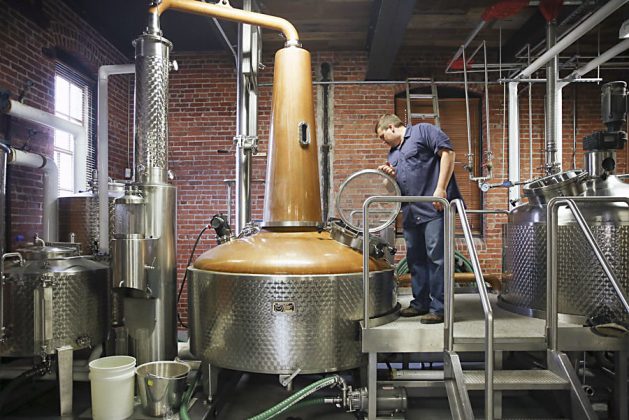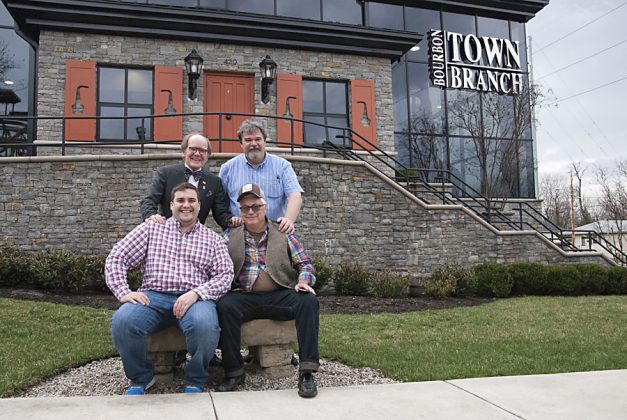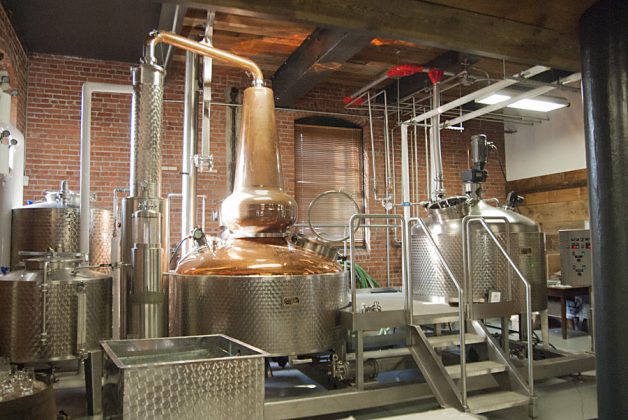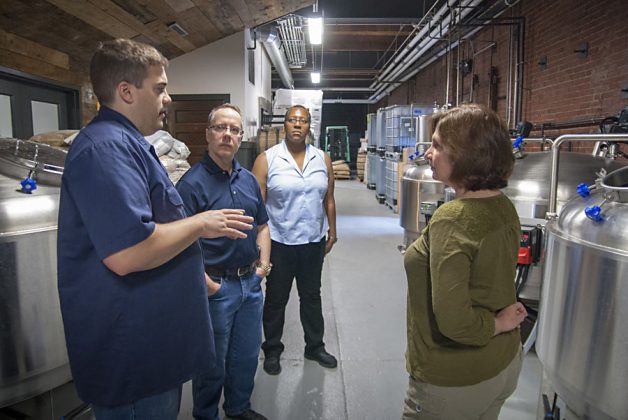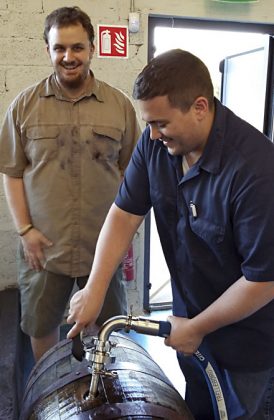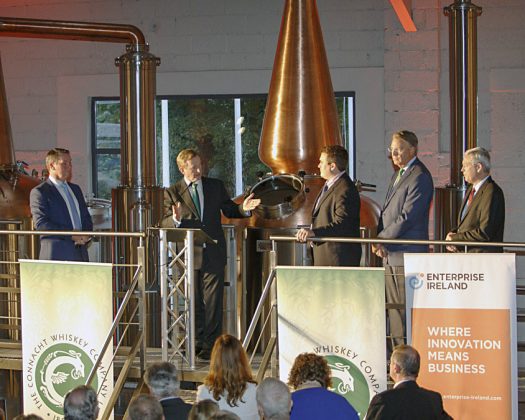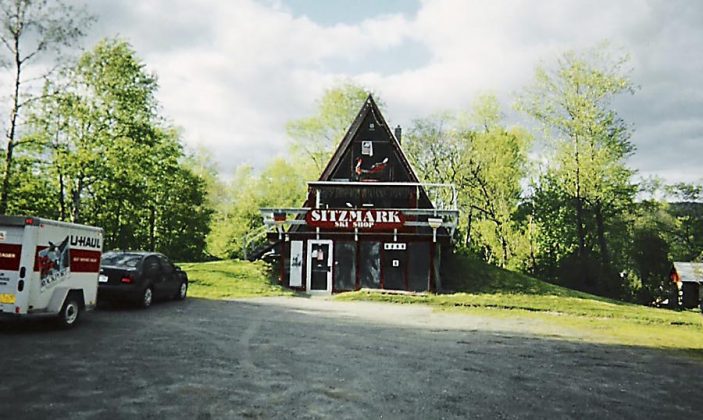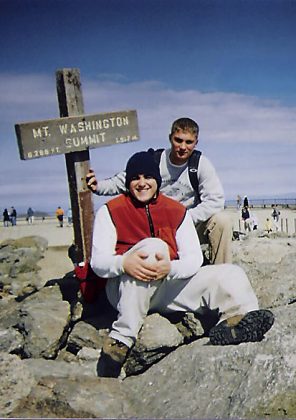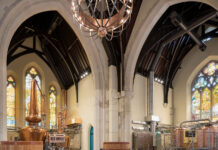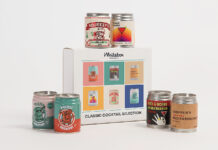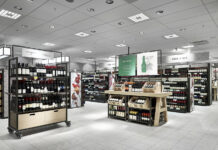There wasn’t much in the way of coursework for distillers in the early 2000s, and early adopters in American craft distilling relied on the tried-and-true scientific method. This is most likely why Robert Cassell has become the successful veteran craft distiller he is today.
“I always loved labs and never loved the bookwork,” said the 39-year-old co-founder and master distiller of both Philadelphia’s New Liberty Distillery and the Connacht Whiskey Company in Ballina, Ireland. “I had perfect attendance in any science lab I’ve ever had. I was only half-there for the bookwork.”
The Winding Road to Craft Distilling
Robert Cassell’s journey to distilling award-winning spirits began at a brewery in West Virginia, where he studied nuclear medicine at Wheeling Jesuit University by day and managed the campus bar by night. For extra cash, he worked part-time as assistant brewer under then brewmaster Eric Watson at River City Ale Works in Wheeling, WV, and this is where his love for fermentation began.
“Making beer was the first time I experienced the satisfaction of turning something theoretical into something physical with my hands,” said Cassell.
Creating something from nothing isn’t enough, though, and Robert learned the important lesson that is the balancing act between what you want to make and what consumers want to purchase.
“Raspberry wheat ale was the one beer I hated making, because all I wanted was to make a robust porter and an Oktoberfest, but those weren’t popular in that market,” said Cassell. “And people loved the s### out of our raspberry ale!”
Staff education was another lesson Cassell learned in those early brewing days, highlighting the importance of spending time with colleagues, whether they interface with customers, wholesalers or vendors, to ensure everyone is describing a product’s unique flavor profile in a consistent manner that is both appealing and easy to understand.
After two years with River City Ale Works, Cassell moved on and got a job working for Harpoon Brewery in Vermont, where he lived out of an A-frame ski shop, hanging his clothes on the wooden dowels that held up skis. Though Cassell was no stranger to cold weather, he found life in rural Vermont challenging for another reason: “I loved all the outdoorsy stuff, but soon realized I was a single guy in my early 20s and there were no single women in the area.”
A year later, Robert moved back home to Pennsylvania and got a job downtown with Victory Brewing Company. His interest in detailed analysis and thorough experimentation got him promoted within months to quality assurance director, a role he held for the next two years.
Brewmasters and founders Ron Barchet and Bill Covaleski modeled a collaborative approach to educating staff, and the team often found themselves after hours having “crazy” conversations next to the tap handles about improving the beer.
“This is the relationship I’ve strived to have with my co-workers ever since,” said Cassell, remembering helpful conversations with industry peers, too. “I once tried analyzing our optimization process for lagering beer, and there was no data on how to do this. That’s when I met Joe Frinzi (brewmaster at Yuengling Brewery), who showed me an old-school technique of distilling off some of the beer and analyzing the sulfur content with a spectrophotometer.”
Another conversation Cassell started with high school friend Jake Burns and his uncle, Andrew Auwerda, led to his next big course correction. Together they noticed the labels on so many bottles of spirits having the same names and locations listed, and none were made in Pennsylvania.
“This stayed with me,” said Cassell. “There was no good reason why spirits couldn’t be made by me in Pennsylvania, and that’s what eventually led me down the path of craft distilling.”
Cassell enrolled in Dr. Kris Berglund’s distilling technology workshop at Michigan State University and afterward enrolled at Heriot-Watt University in Edinburgh, UK. He, Burns and Auwerda worked on a business plan. A year later Cassell went to the first ADI Conference, which he said had no more than 35–40 people in attendance.
“It was an interesting time in the evolution of craft distilling,” said Cassell. “Now 90% of the conference seminars I go to have more people in one session than there were at that entire first conference.”
Coming from craft brewing, Cassell had seen firsthand what the wave of exponential industry growth looks like and used that analogy to explain craft spirits’ potential for financial backers. With the help of some 50–60 angel investors, Auwerda, his friend Timothy Yarnall and Cassell opened Philadelphia Distilling in 2005 with the goal of producing a premium citrus-forward American dry gin that would rival the best of the British classics.
A year later, Philadelphia Distilling put out their first shipment of Bluecoat Gin, and toward the end of 2006, Robert found himself lobbying Pennsylvania senators and representatives from his cell phone while working at the distillery. He advocated on behalf of craft distillers for the next six years, spanning two gubernatorial administrations, and eventually got legislation. House Bill 242 passed in late 2011, defining a micro-distillery as having production under 100,000 proof gallons and including many forward-thinking provisions, such as the ability to sell spirits on-site and allowing direct consumer sales at up to five locations throughout the state.
“It was a cool thing to watch, because so many senators I reached out to had no idea we couldn’t do this stuff,” Cassell recalls. “Not only did it give me exposure to something different, but the legislation passed with the most amount of yes votes for any alcohol-related legislation in Pennsylvania since Prohibition.”
Cassell was appointed to a liquor-control advisory team to help Governor Tom Corbett craft HB 242. Eighteen months after it was enacted, the number of distilleries in Pennsylvania had grown from 3 to 82. [As of press time, there were 115 licensed DSPs in the state.]
In 2008, after Bluecoat Gin won best-in-class awards from the San Francisco World Spirits Competition and International Wine and Spirits Competition, Cassell became the first distiller on the East Coast to produce an absinthe in 95 years.
Venturing Beyond the Realm
After eight years with Philadelphia Distilling, Cassell transitioned into a consulting role for Proximo Spirits. Together with their former president and CEO, Mark Teasdale, they built out the new Hangar 1 Vodka Distillery in Alameda, California. Soon after, Cassell co-founded two new companies with his partner, Tom Jensen, former president of Rémy Martin USA: New Liberty Distillery, also in Philadelphia and the Connacht Whiskey Company (CWC), in Ballina, Ireland.
Occupying an old livery stable, New Liberty’s focus is on resurrecting lost flavors of rye, while creating new whiskeys that draw on locally sourced ingredients and Cassell’s skills in blending sourced whiskeys together under the Kinsey brand.
“We can create depth and complexity that’s similar to Irish and Scotch whiskey this way,” said Cassell.
Cassell and New Liberty work with Castle Valley Mill in Doylestown, PA, and Deer Creek Malthouse in Glen Mills, PA, on sourcing heritage grains. Castle Valley provides the deep red corn kernels that go into New Liberty’s Bloody Butcher Bourbon, and Cassell is acquiring different varietals of malted barley and rye from Deer Creek Malthouse, which give New Liberty’s spirits a unique taste and great product differentiation.
“If I’ve learned anything about working with a small business, we’re always talking a year in advance — knowing that our ability to grow together is very symbiotic,” said Cassell about working with craft maltsters. “I even tell them if I’m considering hiring a new distiller so they know if we need to ramp up production.”
But working with other local businesses isn’t just about unique inputs and different-tasting spirits for Cassell, it’s also about practicing what he and craft distillers preach.
“That’s why we talk about the impact we can have on the county, state, region and the many tentacles that reach beyond our distilleries when we’re lobbying for change. Since distillers have their roots in agricultural processing, it feels like we’re getting back to those elements when we work with craft farmers and grain suppliers.”
Opening Connacht Whiskey Company’s nearly 40,000-square-foot facility along the River Moy on old castle grounds was another milestone for Robert — becoming the first craft distillery in County Mayo in 150 years. Opening Connacht was the collision of two things for Cassell: a lucrative opportunity, since there were only three manufacturing plants in Ireland at the time, and on the creative side, an opportunity to change the core mash bills in a market that only knew Bushmills and Jameson.
“I had a lot of the same angst and anxiety I remember from those early ADI conferences. Everyone wanted to compare us to whichever big Irish whiskey brand they could think of, and all we knew is that we were planning on doing it differently… though we all wondered if we were doing it right.”
Getting Connacht up and running has been both frustrating and rewarding for Cassell. The former because he’s already lived through the birth of craft distilling and knows the challenges that come with antiquated regulations and industry networks resistant to change. But the chance to help a new community of people understand craft distilling is thrilling, too.
“One of the best things craft distilling is bringing consumers is true variety and innovation. That’s why craft has a solid reason for being,” said Cassell. “We can be transparent about different tastes, branding and how we define new territories. This is why we’re commanding more shelf space in stores and why bartenders are asking for specific brands. All of these are new concepts in Ireland.”
On the grain side, Cassell is working with an Irish farmer on some heirloom varietals, which is a long-term play because everyone in that part of the world anticipates that the same ingredients from the same suppliers will be used. Using local inspiration and Irish grains is a cultural shift that could take some time for others to adopt.
For Cassell, the logistical challenge of working within the confines of another country’s unique regulations, coupled with the six-hour time differen ce, is tough.
“What used to take 30 seconds at the water cooler now takes three conference calls and a bunch of emails,” said Cassell. “You really have to trust the people you work with, since you’re flying blind in many ways.”
Keeping Busy
While running Millstone Spirits Group, the umbrella corporation that owns New Liberty and imports Connacht Whiskey, Cassell is writing two books, one on gin and one on laboratory methods of analysis for craft distillers. He’s also working on still designs for Specific Mechanical.
“Specific Mechanical has a couple of great products out there right now, like the lean startup, a skid-mounted brewpub equivalent that can mash, ferment, distill, and has interchangeable capabilities on top. This came from wanting product diversity in the portfolio while limiting someone’s capital exposure.”
Thanks to this relationship, Cassell was able to get Specific Mechanical stills shipped to Ireland in five months, which was unheard of back in 2015 when he was building out Connacht. He also uses Specific Mechanical’s 240-gallon skid-mounted system (model #1) with interchangeable lyne arm and head to allow for multiple configurations and flexibility at New Liberty.
As president of the Pennsylvania Distillers Guild, Cassell recently secured a health insurance offering for member companies, the first of its kind in the US. He’s also spearheading a long-term initiative to find local farmers who can work with craft distillers to make every kind of spirit from agriculture grown within the state, creating jobs and more diverse products.
After spending several hours interviewing Cassell, two things are clear: He’s driven by an empirical curiosity that never stops, and he’s passionate about sharing his analyses with peers, customers and colleagues. His love for educating people about the mash-up of science and creativity behind craft distilling, coupled with a healthy humility and sense of humor about his career, is what has cemented his reputation in American craft distilling as someone to watch, listen to and learn from.

